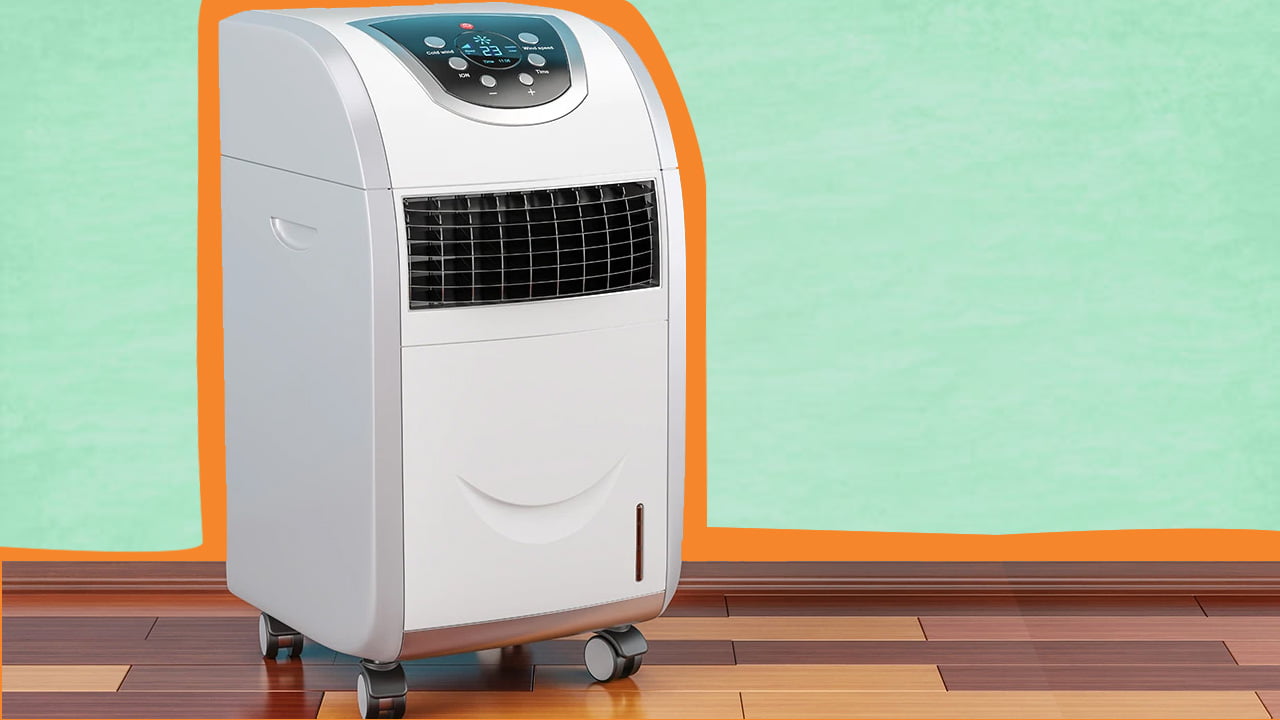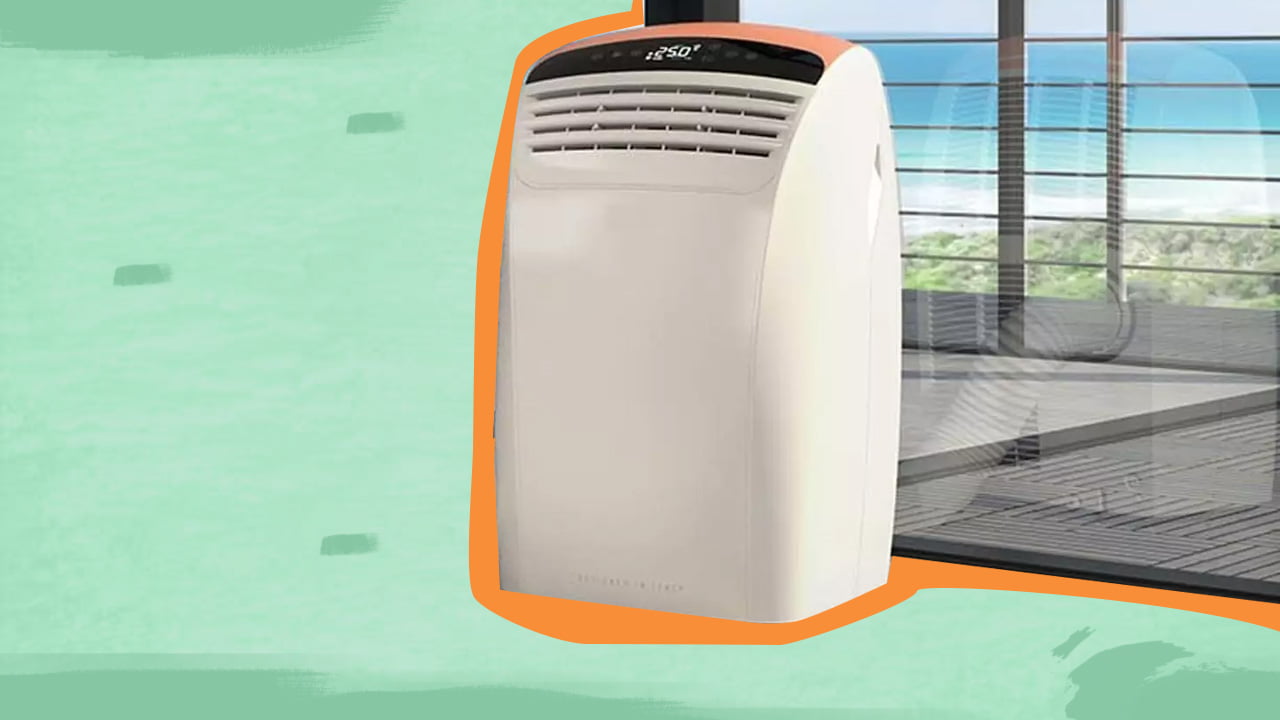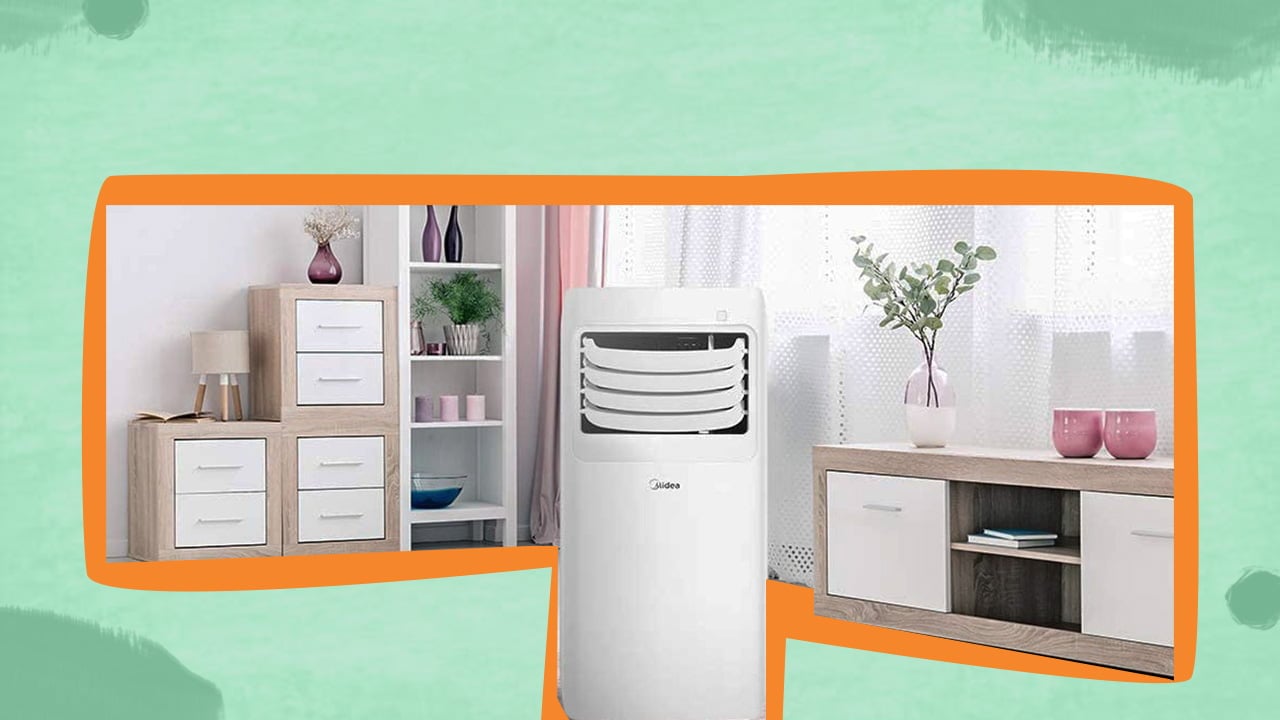Are Portable Air Conditioners Worth It? | All You Need To Know
A portable air conditioner can be a cost-effective solution for cooling smaller spaces, one that doesn’t require intensive, professional installation. However, it has a few downsides that you need to consider before purchasing one. Portable air conditioners have become popular due to their compact nature and ease of use. But these features aren’t enough to […]

A portable air conditioner can be a cost-effective solution for cooling smaller spaces, one that doesn’t require intensive, professional installation. However, it has a few downsides that you need to consider before purchasing one.
Portable air conditioners have become popular due to their compact nature and ease of use. But these features aren’t enough to answer if they are worth investing in. That’s why I am here to help you learn everything about these ACs so that you can make the right decision.
How Does A Portable Air Conditioner Work?

Before I proceed further, it only makes sense to provide a brief overview of how portable air conditioners work, especially if you haven’t seen one before. To put it simply, your portable AC unit will work pretty similarly to a window air conditioner or central air conditioning system.
In case of central or window air conditioners, though, the system “discards” the warm air from indoors through the unit that sits outdoors. However, portable AC units typically have a single or dual exhaust hose system and a window kit. This way, you can install the outdoor vent unit to remove the warm air outdoors.
Now that you know how portable ACs function, let me walk you through the different benefits they offer.
The Positives Of A Portable Unit
1. Transportability
No surprises here that the first advantage of a portable air conditioner is, well, its portability. Besides being compact and self-contained, most portable air conditioners have a wheeled base to help you move them from one room to another. Likewise, the venting system can be removed from one window and installed in another, provided it has adequate room.
Compare this with the effort required to unmount and install a window or split AC from one place to another, and you will appreciate this benefit if you haven’t already! No dedicated tools or surface damage- just roll the unit to another room, and you will be good to go.
2. No Permanent Installation
Because portable air conditioning systems are meant to ‘move around,’ it doesn’t need to be permanently installed like a split or window AC. Moreover, you can easily install the venting system the DIY way with the help of the window kit and installation instructions provided by the brand.
Keep in mind that the vent hose should be slid into the window closest to the unit, and the exhaust should properly fit into the window. This will allow it to release the condensed hot air outdoors effectively.
Tip
Many modern portable air conditioners come with other venting options, too. So, if you don’t have the required indoor window space, you can choose a unit that facilitates venting through the ceiling, wall, dryer vent, casement windows, or even sliding doors.
3. Affordability
A portable air conditioner is generally more affordable than most other air conditioning systems. If you have a small space, you can consider getting a portable unit to cool it completely, depending on its cooling capacity.
Further, many portable ACs are essentially HVAC systems, thereby cutting down on the need and budget for a separate space heater. They can even be used in tandem with other high-power heating or cooling systems, meaning you don’t need to run the latter for long.
I also found out when testing some units that they can aid in the dehumidification process on humid days, making the space more comfortable.
4. Accommodating
If you’re renting a new place, it may happen that your building management may place severe restrictions on what you can do to the exterior of your condo or apartment. In such cases, installing a window unit will go straight out of the window (pun intended)!
However, a portable air conditioner can save you from the trouble of compromising on cooling the space, as you won’t need to break any walls or restructure any windows.
The Down-Side Of Portable Air Conditioners
I have used and seen quite a few portable units, though, and it’s from my first-hand experience that I can say these appliances aren’t completely free from disadvantages. As such, here are a few things that can affect your overall experience of using one.
1. Low Cooling Capacity
Some of the best portable ACs, such as the popular units from reputed brands like Honeywell, have a BTU (British Thermal Unit) count comparable to window AC units. However, this doesn’t make them equally “powerful,” primarily because of the way portable ACs work.
Unlike window ACs that use outdoor air to cool down their coils (located in the outdoor section), portable units use the conditioned air inside the room for cooling the parts. The result is a negative pressure, which draws warm and unconditioned air from the vicinity into the room being cooled.
Hence, a portable unit with the same BTU rating as a window AC effectively cools less space than the latter, thereby consuming more electricity in effect. And this can add to its operating cost significantly depending on how long it runs.
2. Noisy Operation
Since a portable air conditioning unit is completely installed inside a room, it can get quite noisy. In fact, some of them can produce noise measuring up to 70 decibels, which can be bothersome for people looking to keep the room quiet.
If you plan to operate it for long hours, consider choosing the lowest fan setting to reduce the noise. You can also move it to the farthest corner of the room if you have an extension cord and if the exhaust hose is long.
Moreover, you can find many portable air conditioners with dedicated noise-dampening features to keep the noise levels low.
3. Constant Maintenance
If you notice dust and debris accumulating on the exterior of the portable unit, there’s a high chance that the insides have become dirty. That’s why cleaning the unit regularly is important to prevent any dirt or debris from damaging the internal components.
Similarly, you may find yourself changing the filters and cleaning the condenser coil often, depending on the indoor air quality.

Final Words
After watching portable ACs in action and testing a few units, I have come to the conclusion that the worthiness of a portable unit will depend on your needs.
If you want to cool a small space on a budget and don’t want the hassle of any permanent installations, then a portable unit may be worth it. However, its maintenance and sound levels may be tradeoffs that you need to compromise on.
If you want to learn more about portable ACs, check out my other article “Most Energy-Efficient Portable Air Conditioner.” And I will see you next time!
